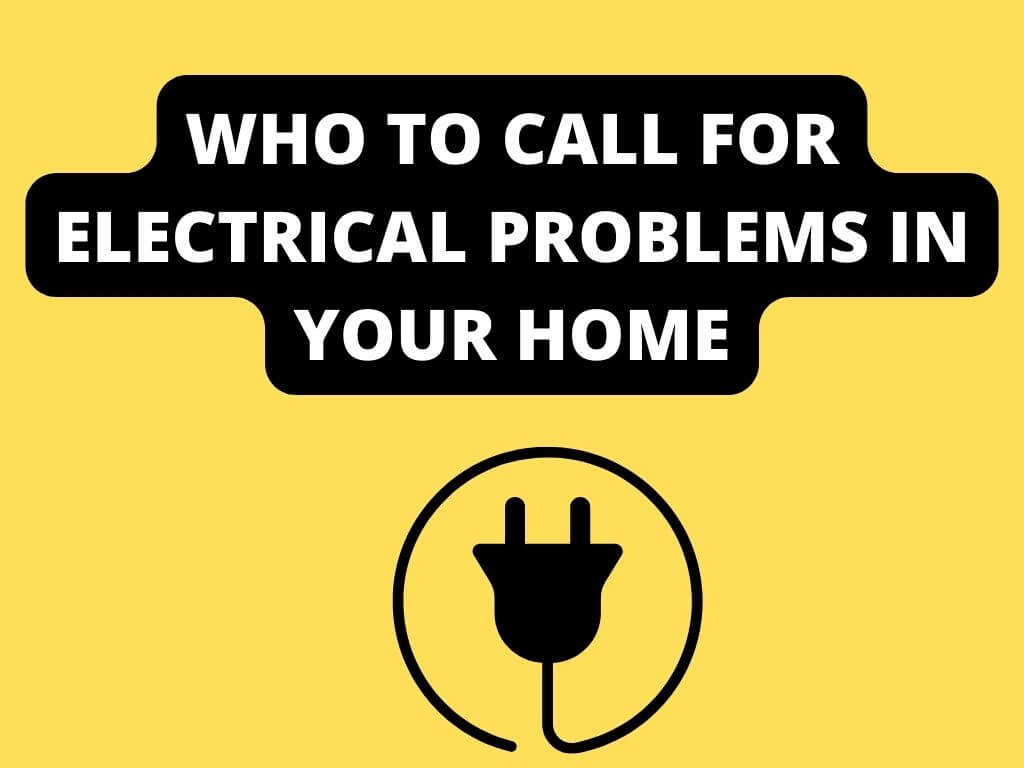If you have any electrical problems in your home, it’s always best to call a professional. However, sometimes people try to tackle the problem themselves and make things worse. If you’re not sure who to call for help, this blog post will give you some tips.
When to call an electrician
When it comes to dealing with electrical problems, it’s always a good idea to play it safe and call an electrician. If you experience any of these problems in your home or office, you should seek an expert’s help: flickering lights, sparks coming from outlets, breaker switches tripping during everyday use, and burning smells near an outlet or fuse box. Don’t take the risk of trying to troubleshoot and repair the issue yourself! Get in touch with a qualified electrician to ensure that the job is done safely and correctly.
What kind of electrical problems require an electrician’s help
Electrical issues can be tough to diagnose, so it’s important to know when you need to call in an expert. If your power is going out randomly or a certain outlet isn’t working correctly, it may be time to call in an electrician. You should also consider hiring an electrician if you plan on replacing existing wiring; this could help avoid any potential problems related to unsafe electrical repairs. Finally, if you have any questions about the safety of your current electrical setup, bringing in a professional can provide answers and peace of mind that the electrical system is up-to-date and will function properly.
How to troubleshoot simple electrical problems yourself and what are you allowed to do by yourself
Don’t let electrical problems keep you in the dark! Troubleshooting simple electrical issues can be easy and manageable. You are legally allowed to do minor DIY repairs like replacing light fittings, sockets, and switches – as long as they’ve been manufactured to comply with building regulations. If you’d prefer not to tackle it yourself, it’s always best to reach out to a professional electrician who will come in and make sure all the work is done safely and up to code. The important thing is to avoid tackling any trickier jobs without proper guidance or knowledge, after all, safety first!
A homeowner need not be an electrical expert to make minor repairs on their primary residence—no license necessary! Though working on a rental property requires a professional. Homeowners are able to perform certain basic tasks in and around the home, such as:
- replacing an existing light fixture
- replacing a light fixture with a ceiling fan
- replacing an existing outlet
- replacing an existing light switch
- replacing an existing switch with a dimmer
- replacing a fuse inside a fuse box
- replacing a breaker inside the electrical panel
- replacing an existing bathroom fan
- replacing an existing hardwired smoke detector
- replacing an existing appliance
- Installing low-voltage outdoor lighting
While electrical codes may differ from place to place, any of the following electric upgrades need to be carried out by a certified electrician and likely require an official permit.
Qualified electricians must be hired to complete the following tasks. To legally work on electrical systems, an individual needs a valid electrician license. Professional residential electricians are capable of:
- upgrading or relocating an electrical panel
- upgrading the meter base or service mast
- upgrading to 200amp service
- running new electrical wiring for an outlet, switch, or fixture
- adding a new breaker or circuit
- adding a subpanel
The different types of electricians and what they specialize in
Working with electricity requires expertise and the right kind of electrician for each job. Did you know that there are actually multiple types of electricians, who specialize in different areas? Power-limited technicians (PLTs) install and maintain the low-voltage wiring found in security systems and telecommunications lines. Journeyman electricians handle all types of electrical issues including general wiring, installations, and repairs to big industrial machines. Finally, master electricians are experts in their field and they’re capable of handling any electrical need, no matter how complex it may be. Next time you’re having electrical problems, make sure to call the right person to get the job done right!
How to find a good electrician in your area
Finding a good electrician in your area doesn’t have to be overwhelming. The key is to do your research ahead of time, so you can make an informed decision when it comes time to call someone. Ask trusted friends, family, and neighbors if they have any recommendations, and look at customer ratings and reviews online to get a sense of what others’ experiences have been. Once you’ve narrowed it down to a few candidates who you think might be a good fit, take the time for some due diligence – ask questions about their qualifications, experience, and certifications before making your final decision. Following these steps will ensure you get the help you need from an expert so you can get back on track with your project.
Knowing when to call an electrician can save you a lot of time, money, and stress. Electricians are trained professionals who know how to safely handle electrical problems. Many times, they can also troubleshoot simple problems over the phone or online. There are different types of electricians, so be sure to find one that specializes in the type of problem you’re having. You can ask friends and family for recommendations or search online for reviews. Once you’ve found a reputable electrician in your area, contact them to schedule an appointment.

